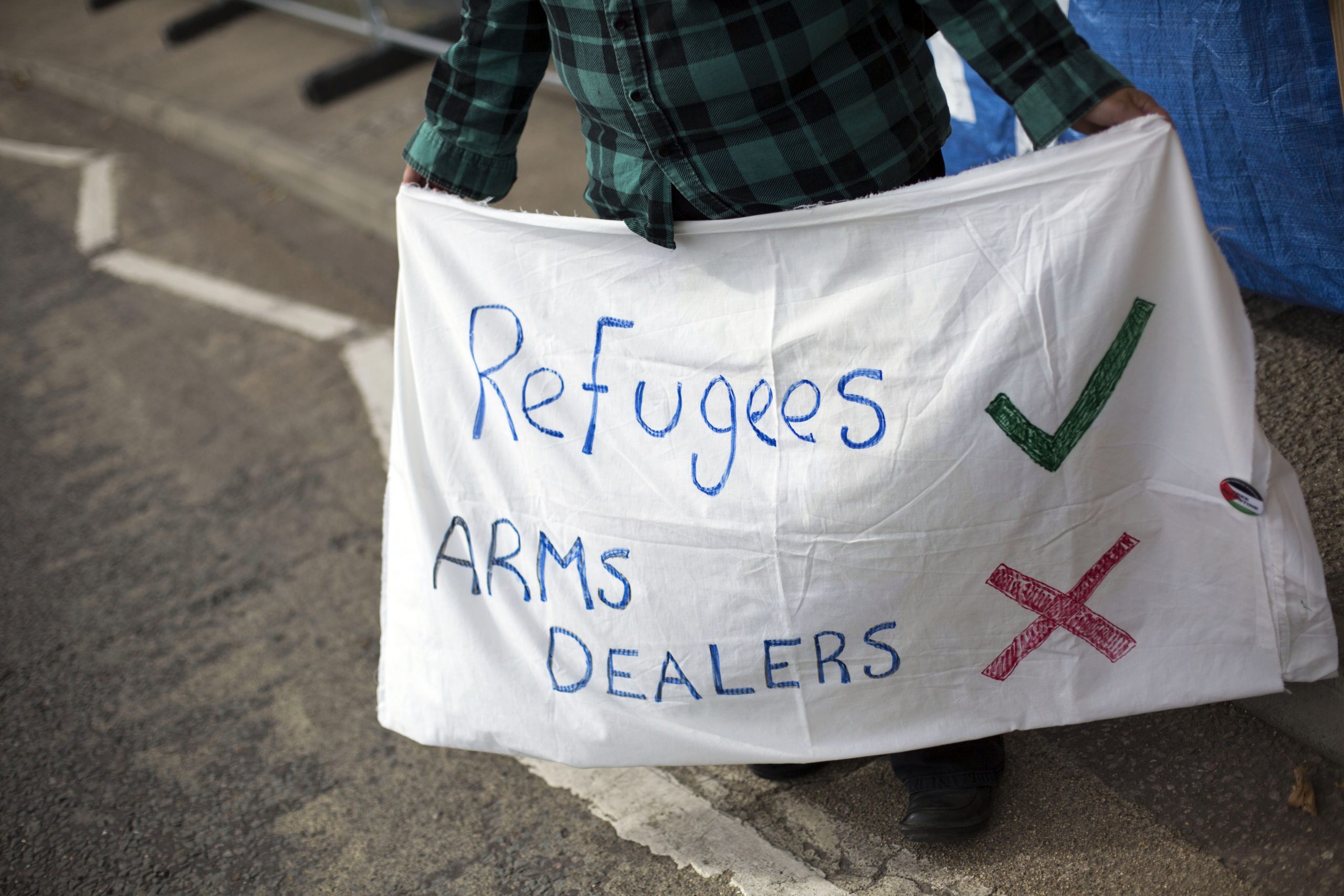In this guest piece, Neil Devlin, from London CAAT, shares his investigations into the London Borough of Islington’s investments in the arms trade.
As is well known, CAAT argues against the international arms trade. What, though, of investment in arms on its doorstep? The CAAT office is in the London Borough of Islington (LBI). Islington Council invests two & a half million pounds in arms, or as it calls it “defence and aerospace” (1). So, is there anything that CAAT can do to encourage the council to divest?
Divestment challenges
Local authorities typically invest some of their pension funds in arms. With pension funds, they have a duty to get ‘the best returns on their investments.’ In 2007, Liverpool Council, then Liberal Democrat, tried to sidestep its involvement in that trade. It was not successful.
If one wants to divest from arms, things soon become legally complex. But one QC is on record as saying: ‘If a council is, for example, deciding between investing in tobacco stocks or cancer treatments, and they both promise to deliver the same financial returns, then it is acceptable for ethical, political or social considerations to enter into the mix.’ In the light of that view, then, would it be possible for CAAT to mount an argument against, say, the pension fund of Islington Council?
Perhaps one could argue that arms cause wars; wars cause refugees; refugees seek asylum; and supporting refugees has a financial impact. That would be a new line of argument with no guarantee of success – but it may be worth trying.
Political Will
So much for legality and morality. What of the political will? With Islington Council, things are muddy. On one hand, on 14.4.21, Cllr Paul Convery (Labour), said in an email, ‘For Islington Council’s pension fund … we do not have a policy to divest from armaments industries.’ Although Cllr. Convery does not bring good news, he, at least, is frank about the issue.
On the other hand, on 2.6.19 Cllr. Richard Watts (Labour), the then leader of the Council, was asked about LBI’s investment in Rolls Royce. He replied that the Council was not involved: it was the pension fund that was involved.
But does not the Leader’s claim that the fund is separate from the Council add up to moral duplicity? After all, the money comes mainly from the citizens of Islington, is supervised by Islington councillors and is intended for Islington Council workers.
For divestment from the arms trade, there is a precedent: divestment from fossil fuels. Last year, the ‘Islington Gazette’ reported on fossil fuel divestment by the Council: “Council pledges to carry on reducing pension fund fossil fuel investments”
If it can do that with fossil fuels, why can’t it do that with arms?
The council said in an email on 19.1.21, ‘a tracker … fund means that Islington has holdings … and this ownership also allows us to collaborate with our peers to engage with companies to bring about change.’ (2), (3)
But, on the arms trade, what engagement, what change?
Notes
(1) Email from Mary Green, Democratic Services Law and Governance, Resources Department, Islington Council on 19.1.21.
(2) Tracker funds are collective investment schemes that follow the movement of a market index, such as the FTSE 100.
(3) Email from Mary Green, (ibid.)
This is a guest blog: opinions of contributors do not necessarily reflect CAAT’s views.

